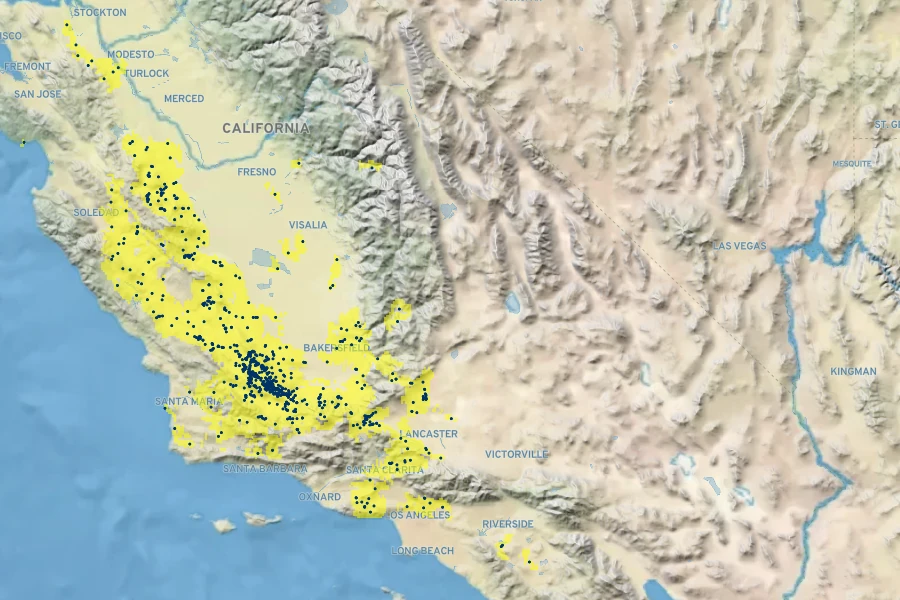Hillside Daisy
/
(Monolopia lanceolata)
Hillside Daisy (Monolopia lanceolata)
/

Dawn Endico
CC BY 4.0
Image By:
Dawn Endico
Recorded By:
Copyright:
CC BY 4.0
Copyright Notice:
Photo by: Dawn Endico | License Type: CC BY 4.0 | License URL: http://creativecommons.org/licenses/by/4.0/ | Rights Holder: Dawn Endico | Publisher: iNaturalist | Date Created: 2017-04-15T19:53:32Z |

























Summary
Monolopia lanceolata, commonly known as hillside daisy or common monolopia, is an annual herb in the Asteraceae family. It is endemic to California, specifically found in the coastal and valley grasslands, chaparral, oak woodlands, and the edges of deserts. This species typically grows to about 31 inches tall with a slender, occasionally branching stem that is often woolly in texture. The hillside daisy blooms from late winter through spring, showcasing small but showy golden-yellow flower heads at the ends of the stem branches.
The hillside daisy is valued for its bright, cheerful flowers that add a splash of color to wildflower meadows and naturalistic garden plantings. It is easy to grow from seed and can be used to great effect in mass plantings for a stunning display of spring color. In cultivation, it prefers full sun to light shade and requires well-drained soils. While it is drought-tolerant once established, additional water during prolonged dry spells can prolong flowering. It is not known for having significant problems with diseases or pests, but it can be short-lived and may need to be reseeded annually to maintain a presence in the garden.CC BY-SA 4.0
The hillside daisy is valued for its bright, cheerful flowers that add a splash of color to wildflower meadows and naturalistic garden plantings. It is easy to grow from seed and can be used to great effect in mass plantings for a stunning display of spring color. In cultivation, it prefers full sun to light shade and requires well-drained soils. While it is drought-tolerant once established, additional water during prolonged dry spells can prolong flowering. It is not known for having significant problems with diseases or pests, but it can be short-lived and may need to be reseeded annually to maintain a presence in the garden.CC BY-SA 4.0
Plant Description
- Plant Type: Herb
- Height: 1-2 feet
- Width: 1-2 feet
- Growth Rate: Moderate
- Flower Color: Yellow
- Flowering Season: Spring, Summer
- Leaf Retention:
Growth Requirements
- Sun: Full Sun, Part Shade
- Drainage: Medium, Fast
Common Uses
Bee Garden, Butterfly Garden, Low Maintenance
Natural Habitat
Coastal and valley grasslands, chaparral, oak woodlands, and desert edges
Other Names
Common Names: Lanceleaf monolopia
Scientific Names: Monolopia lanceolata
GBIF Accepted Name: Monolopia lanceolata
